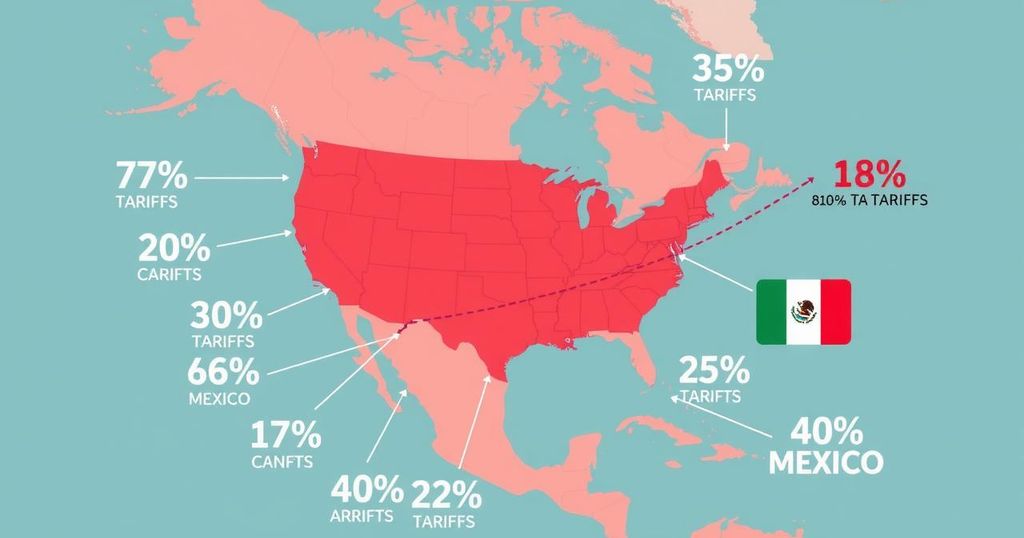Canada and Mexico Exempt from Trump’s April 2 Tariffs: A Trade Overview

On April 2, President Trump announced reciprocal tariffs that excluded Canada and Mexico. Despite avoiding these tariffs, both countries face other existing tariffs and new levies, particularly on automotive products. The USMCA offers some protections, but ongoing discussions may influence their trade situation.
On April 2, President Donald Trump proclaimed reciprocal tariffs on imported goods, stating that the United States has been “looted, pillaged, raped, plundered” by other nations. Despite this announcement, Canada and Mexico were exempted from these new tariffs, which instituted a baseline charge of 10 percent on various imports, increasing up to 45 percent.
Although Canada and Mexico escaped the immediate impact of the April tariffs, they are not entirely free from tariff actions. Existing tariffs on goods from these countries remain in effect, with impending new levies specifically targeting automotive imports. Canada is subject to ongoing 25 percent tariffs on certain goods, including those related to fentanyl, while an additional 10 percent tariff applies to Canadian energy and potash products.
Under the US-Mexico-Canada Agreement (USMCA), goods from Canada and Mexico will continue to be exempt from the new reciprocal tariffs, ensuring some level of trade stability. However, if Canada and Mexico negotiate deals on specific levies, they may encounter the standard baseline tariff set forth by President Trump.
Canadian Prime Minister Mark Carney expressed a commitment to fight back against these tariffs, stating the government will implement counter-measures to protect their workforce. Similarly, Mexican President Claudia Sheinbaum is anticipated to address Mexico’s response during an upcoming press conference. In addition, countries such as Russia, North Korea, and Cuba are not affected by these tariffs due to ongoing sanctions which limit their trade relations.
In summary, while Canada and Mexico successfully avoided Donald Trump’s April 2 reciprocal tariffs, they remain subject to other tariffs. Existing duties, especially related to fentanyl and automotive products, continue to affect trade between these nations and the United States. The USMCA provides some protections, but negotiations regarding levies may still lead to the imposition of additional tariffs. The responses from both Canadian and Mexican officials indicate potential measures to counteract US tariff policies.
Original Source: www.hindustantimes.com








